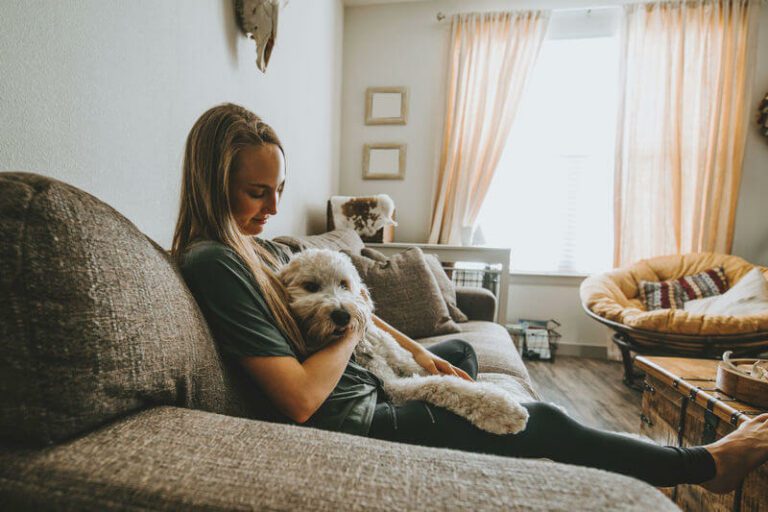The financial negotiations of pets and divorce
We know that pets are considered a chattel in the eyes of the law – but what does this mean in practice?
Pets come into financial proceedings because various financial aspects of their care and upkeep will need to be factored into a Schedule of Expenditure, including:
Food
Vets bills
Dog walkers
Holiday arrangements
The Schedule of Expenditure is a document each party creates which explains their needs post-divorce, including housing and income. From this, the financial settlement can be negotiated. Pets are often included in this, so there is an understanding of overall cost and ongoing maintenance.
-
Can I have a shared care agreement for my pet?
On relationship breakdown, many couples can work together to make decisions about the future, whether this is how finances should be split, child arrangements, or who keeps the family pet.
Some couples will come up with a shared care agreement for their pet, very much like the plan for any children. This could document:
- How much time the pet spends with each party
- Swap over practicalities including days, timings, where it should take place
- What to do if one party is on holiday or needs to swap their time
And anything else considered important.
However, at the moment, there is no legal shared care arrangement or order for pets in the same way there is for children. If you and your ex cannot agree, an application will need to be made to the court as part of your financial negotiations.
-
How is pet custody legally decided in England and Wales?
If you and your ex cannot agree on arrangements for your pet after divorce, and you have tried non-court dispute resolution options such as mediation, a court will check who has proof of ownership. The legal owner has no binding obligation to give the non-legal owner access to the pet.
A court will look at:
- Who bought the animal
- Who primarily cared for it
- Who paid the vet bills
- Whose name the pet is registered in
The only exception is if the pet was clearly gifted from one party to the other.
Courts can order a transfer of ownership, and also factor in upkeep costs into the overall financial settlement.
-
What is a petnup?
A petnup, derived from a prenuptial agreement (or prenup), is a document that a couple draws up that specifically deals with issues relating to the pet. It usually specifies ownership, maintenance responsibilities and what should happen to the pet if you separate.
Having a petnup in place can reduce heartache and costly legal proceedings if you separate.
Petnups are not legally binding, but if they are drafted properly by an expert family lawyer and are fair and reasonable, they will hold weight in court in the event of a disagreement.
-
What can a petnup include?
It is up to the couple what their petnup includes, and some may be more detailed than others.
Petnups can include:
- Who the pet will live with
- Who will care for the pet
- Who is responsible for vets bills
- Food and other expenses
- Holiday arrangements
A shared care agreement can be drafted into your petnup should you wish, explaining what your ideal scenario would be should you separate.
-
Is a petnup different to a prenup?
A petnup is different to a prenup as it specifically focuses on the pet, where a prenup is broader and includes all finances and other arrangements.
Many people choose to include a pet clause in their prenup instead of drawing up a separate document.
Still unsure on petnups? Our expert lawyer, Gabrielle Read-Thomas, explains

The welfare of the pet in divorce
Although the law technically states that pets are chattels, there is a different thought process becoming increasingly popular. Many family law professionals, as well as pet owners, feel that pets’ welfare should be considered. In this case, legal ownership could be overridden if it was in the best interests of the pet.
In some family law cases, where couples have disputed the custody of the pet after divorce, judges have assessed the suitability of each party in taking care of the pet. They have looked at how often they are at home, as well as the impact taking the animal away would have on the children of the household.
A recent case example is FI v DO [2024] EWFC 384 (B). In this case, the court was tasked with deciding the ownership of a golden retriever as part of financial remedy proceedings. There were a number of complexities, including who paid for the pet, and an incident where the husband tried to forcibly abduct the dog when it was in the care of the wife’s mother.
In FI v DO, the Judge ruled in favour of the Wife, even though the parties shared the purchase cost. The Judge considered that the dog in question viewed the Wife as her caregiver. Further consideration was given to:
- Where the dog knew her home to be
- The impact on the children of the family of removing the dog from their lives
- The potential future care arrangement for the dog
This judgment highlights a shifting attitude towards the treatment of pets on divorce.
International laws for pets in divorce
In several countries across the world, the welfare of the pet in divorce proceedings is considered under the law. Alaska was the first state in the US to require courts to consider the welfare of the pet in divorce cases. As a result, there have been custody-like arrangements made for pets, similar to those made in child arrangements.
Spain, France and Portugal have given pets the legal status of ‘sentient beings’, which means that their wellbeing is factored into dispute resolution.
Many people believe that England and Wales should follow suit. Although this is yet to happen legally, there is a movement to recognise pets as more than just chattel.

Should pets be treated like children in divorce?
In FI v DO [2024], the case mentioned above, the judge said “At times it seemed to me that I was in the realms of a Children Act application which featured the dog…”
Many people believe that the law in England and Wales should be changed to reflect the true bond that families share with their pets, following the example of some US states and European countries. This could well be reflected in pet disputes being treated like child arrangements, rather than part of financial negotiations.
However, some feel that child arrangements can be complex enough without including pets in the mix. Deciding arrangements for a pet could increase the time and cost of a divorce or children dispute and potentially increase tension and acrimony between couples.
Gabrielle Read-Thomas, family lawyer, based in Stowe’s Altrincham office, believes there should be a change to the existing law:
“There is a growing movement to change the law around how pets are treated in divorce proceedings. Given how important pets are in our family lives, there should be serious consideration given to their welfare, rather than treating them as inanimate objects.”
What do I do if we can’t agree who will have custody of the pet in divorce?
The UK is considered a pet-loving nation, and many of our families include pets of various shapes and sizes. Pet ownership soared during the Covid-19 pandemic, and other social changes have meant that pets have become ever-more central to family life. For example, many younger couples are putting off having children until later, choosing instead to jointly own a pet. However, this does mean that pets have become more central to divorce and separation disputes. According to research by the Direct Line Group, more than 1 in 4 divorces now involves a dispute over the pet.
When a divorcing couple cannot decide on the post-separation ownership or shared care arrangement for their pet, there are a variety of different methods that can be used to resolve the dispute. Mediation may be suitable for some couples and can help to reach an amicable conclusion. In mediation, parties work together with a trained, impartial mediator to resolve the issue.
Find out more about our mediation solicitors.
However, for some, the court may need to get involved. This is usually part of a wider application to the court. What many people do not know is that because pets are legally considered chattels, any dispute will need to be brought under a financial application. If you are struggling to agree on arrangements for your pet, an expert family lawyer can give you the right guidance. Get in contact with our law team today to find out more.
What our clients say
Newsletter Sign Up
Sign up for advice on divorce and relationships from our lawyers, divorce coaches and relationship experts.
Privacy Policy Close newsletter modal